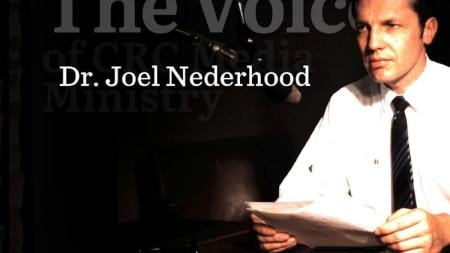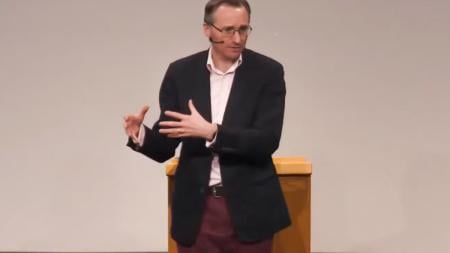CRC Commits to Remembering, Reaffirming, and Reinvigorating Its Response to Global Poverty
![Phillip Leo, Classis Chicago South: “The gospel emerge[s] naturally from a concern about justice.”](/sites/default/files/styles/default_mobile/public/copy_of_leo_phillip_dsc_1596.jpg?itok=aTxMgKo7)
Phillip Leo, Classis Chicago South: “The gospel emerge[s] naturally from a concern about justice.”
Karen Huttenga
Does the church have a role to play in responding to the humanitarian needs in our world? Synod 2017 agreed that it does. This follows a long tradition of similar statements and decisions by denomination.
Synod 2016 had instructed the executive director of the CRC, Steven Timmermans, to “prioritize goals and assign resources for . . . justice and mercy.”
To fulfill that directive, the CRC’s Justice, Inclusion, Mercy, and Advocacy collaboration group produced a study entitled, “Remembering, Reaffirming, and Reinvigorating Our Response to Global Humanitarian Challenges.”
The report retrieved a long list of statements and initiatives made by the CRC beginning with a report on world hunger from 1978. It celebrated the considerable progress made in alleviating hunger and poverty in the world, noting that the number of people living in extreme poverty has fallen from 1.9 billion in 1990 to 836 million in 2015, among other encouraging statistics.
Despite this progress, the report also pointed out that we are living in a time with many needs in our current world.
“The world is facing its largest humanitarian crisis since 1945. An estimated 20 million people are living on the brink of starvation in South Sudan, Yemen, Somalia, and Nigeria. At the same time, violence and civil wars across the globe have led to the largest numbers of refugees in recent history,” the report said.
In the light of the many synodical statements of support for justice ministries, Synod 2017 urged “CRC members, congregations, and agencies to remember and renew [the] passion to serve God by serving the poor and oppressed in ministries of relief, development, proclamation, and advocacy for justice.”
Synod delegates also reaffirmed the conclusions and recommendations contained in the past CRC reports on the cause and causes of hunger.
Some delegates wished for more emphasis on the gospel in these commitments. Doug Alderink, Classis Wisconsin, said that justice work must always revolve around an “intentional expression of the gospel.”
In contrast, Phillip Leo of Classis Chicago South, said what had impressed him as he walked in a climate justice demonstration was how the gospel emerged naturally from a concern about justice. He reminded the synod that “our world belongs to God.”
With the long-term denominational commitment to justice in mind, synod endorsed the creation of “a renewed and revised multiple agency collaborative program that would build on existing ministry capacities.”
The goals are to educate the denomination on the causes of poverty and hunger and work to increase the effectiveness of current denomination ministries for people who are suffering from drought, famine, war, climate change, trafficking, and persecution.
They also encouraged increased support for World Renew’s annual World Hunger Sunday.
To these initiatives the synod attached a long list of supporting grounds citing past decisions, effective ministry directions already taken by the denomination, and ecumenical commitments.
For continuous coverage of Synod 2017 including the live webcast, news, video recordings, photos, reports, liveblog, social media links, and more visit www.crcna.org/synod.


